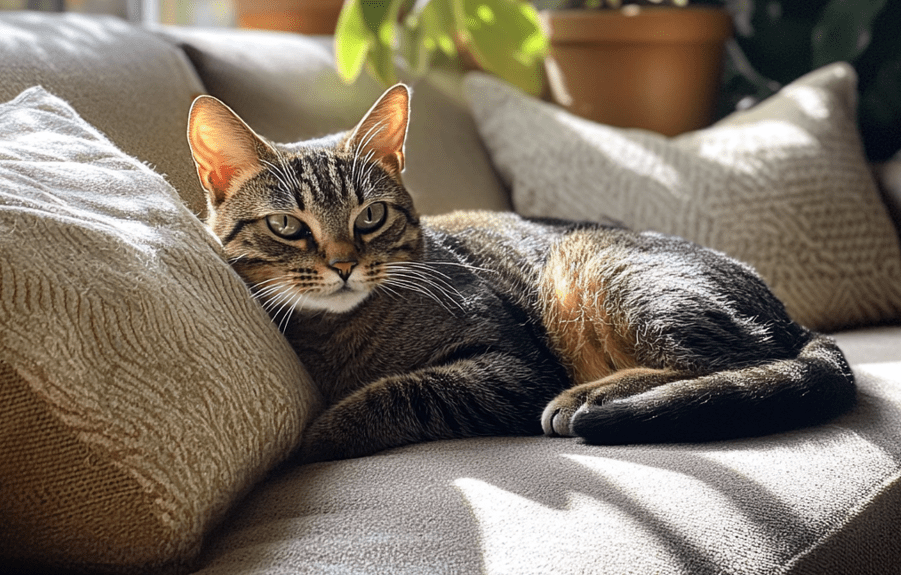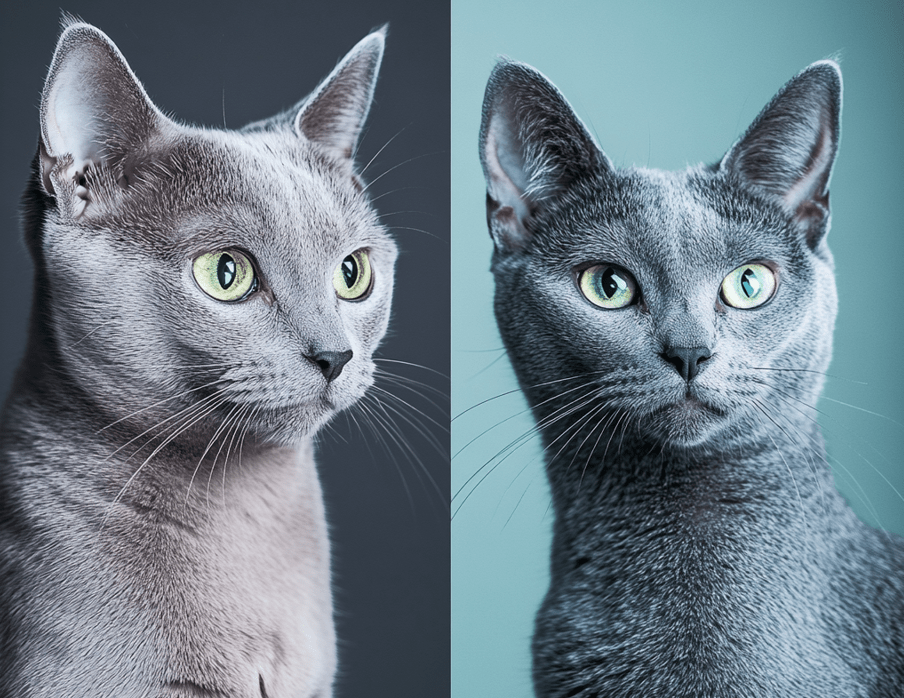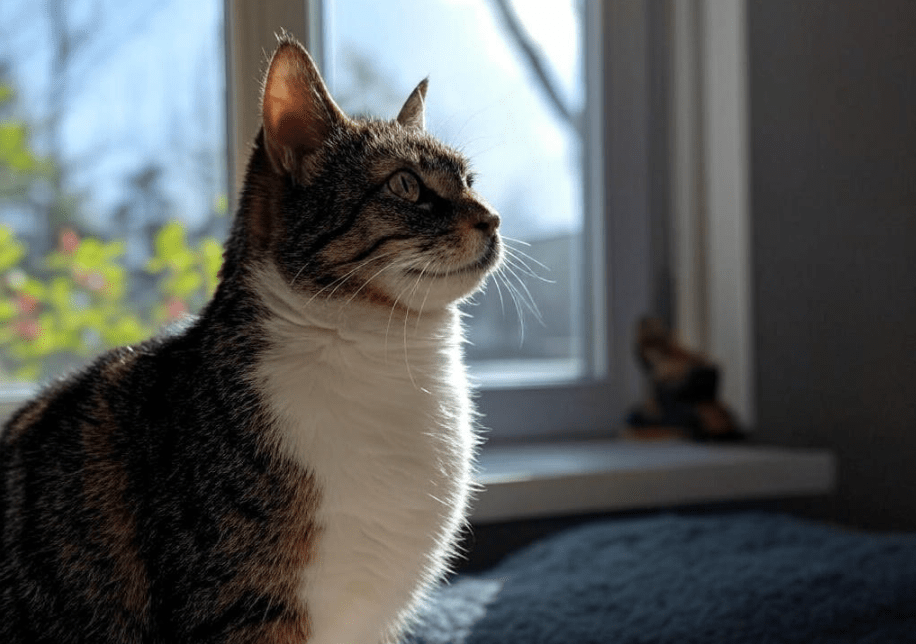
If your Domestic Shorthair wakes you up at night, you’re not alone. These lively, affectionate cats are known for their playful and curious nature, but their nocturnal antics—meowing, pawing, or zooming around—can disrupt your sleep. Understanding why your Domestic Shorthair wakes you up at night is the first step to addressing this behavior. This comprehensive guide explores the causes of nighttime disturbances, from hunger to boredom, and offers practical, natural solutions to help you and your feline friend enjoy restful nights. With the right strategies, you can restore peace to your household.
Understanding Domestic Shorthair Behavior
Domestic Shorthairs are one of the most common cat breeds, celebrated for their diverse coat patterns, resilience, and spirited personalities. As mixed-breed cats, they inherit traits from various feline lineages, often resulting in high energy, intelligence, and strong instincts. These qualities make them wonderful companions but can also contribute to nighttime activity. Cats are naturally crepuscular, meaning they’re most active at dawn and dusk. However, when this activity spills into the middle of the night, it can become problematic. Let’s explore the reasons behind this behavior and how to address it.
Why Does My Domestic Shorthair Wake Me Up at Night?
Several factors may cause your Domestic Shorthair to disrupt your sleep. Identifying the root cause is essential for finding effective solutions. Here are the most common reasons:
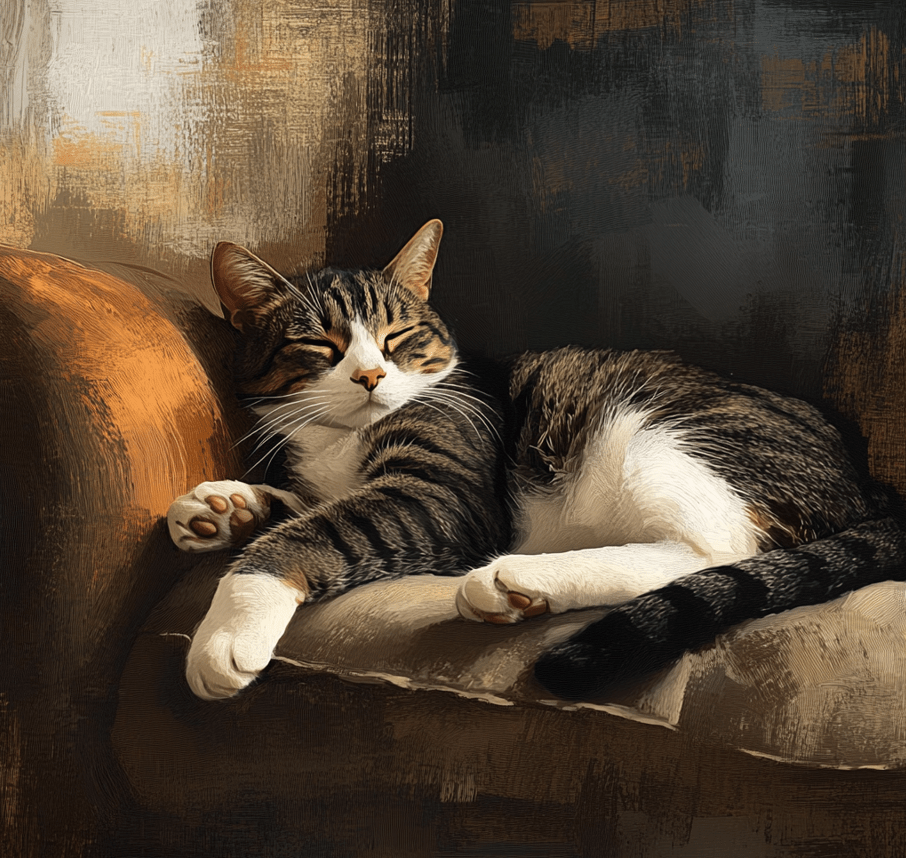
1. Hunger or Feeding Schedule Issues
Cats thrive on routine, and an inconsistent feeding schedule can prompt your Domestic Shorthair to wake you for food. If their last meal is too early in the evening, they may become hungry overnight, leading to meowing or pawing at you.
2. Boredom or Lack of Stimulation
Domestic Shorthairs are intelligent and active, requiring mental and physical stimulation. Without adequate playtime or enrichment during the day, they may release pent-up energy at night, racing around or seeking your attention.
3. Attention-Seeking Behavior
Your cat may wake you simply because they crave interaction. Domestic Shorthairs are social and may meow or nudge you to initiate play or affection, especially if they feel neglected during the day.
4. Medical Issues
Pain, discomfort, or health problems can cause restlessness. Conditions like hyperthyroidism, urinary issues, or arthritis may lead your Domestic Shorthair to vocalize or act out at night. Sudden changes in behavior warrant a veterinary visit.
5. Environmental Stress or Changes
Changes in your home, such as new pets, visitors, or rearranged furniture, can stress your cat, leading to nighttime disturbances. Domestic Shorthairs may meow or roam to express anxiety or reassert control over their territory.
6. Natural Instincts and Circadian Rhythm
Cats’ crepuscular nature means they’re wired to be active during twilight hours. Your Domestic Shorthair may wake you during these periods due to their instinctual drive to hunt, explore, or patrol.
7. Litter Box Issues
If the litter box is dirty, too small, or placed in an inconvenient location, your cat may wake you to signal their discomfort or need to eliminate.
8. Age-Related Factors
Kittens and senior Domestic Shorthairs may have different sleep patterns. Kittens are naturally more active, while older cats may experience cognitive decline or discomfort, leading to nighttime vocalization or restlessness.
Recognizing the Signs of Nighttime Disturbances
To address the issue, observe your Domestic Shorthair’s behavior for clues about the cause. Common signs include:
Vocalizations: Meowing, yowling, or chirping at night.
Physical Actions: Pawing at your face, jumping on the bed, or knocking over objects.
Zooming: Running around the house or engaging in sudden bursts of energy.
Litter Box Avoidance: Scratching outside the box or waking you before eliminating.
Restlessness: Pacing, inability to settle, or frequent repositioning.
Noting when and how your cat wakes you can help pinpoint the trigger, whether it’s hunger, boredom, or a medical issue.
Solutions to Stop Your Domestic Shorthair from Waking You Up at Night
Addressing nighttime disturbances requires a combination of environmental adjustments, routine changes, and behavior modification. Below are practical, effective solutions to help your Domestic Shorthair sleep through the night.

1. Adjust Feeding Schedules
A consistent feeding routine can prevent hunger-driven wake-ups.
Evening Meal: Feed your Domestic Shorthair a substantial meal close to bedtime to keep them full overnight.
Portion Control: Divide daily food into multiple small meals to stabilize their energy levels.
Automatic Feeders: Use a timed feeder to dispense a small midnight snack, reducing early-morning hunger pangs.
2. Increase Daytime Stimulation
Engaging your Domestic Shorthair during the day can reduce nighttime activity.
Interactive Play: Dedicate 15–30 minutes twice daily to play with feather wands, laser pointers, or balls. Mimic hunting to satisfy their instincts.
Puzzle Toys: Provide food puzzles or treat-dispensing toys to stimulate their mind.
Environmental Enrichment: Install cat trees, scratching posts, or window perches to encourage exploration.
3. Create a Nighttime Routine
Establishing a calming routine signals to your cat that it’s time to wind down.
Pre-Bedtime Play: Engage in a vigorous play session an hour before bed, followed by a meal to mimic the hunt-eat-sleep cycle.
Quiet Environment: Dim lights and reduce noise to create a restful atmosphere.
Cozy Sleeping Spots: Provide comfortable beds or blankets in quiet areas to encourage your cat to sleep away from your bedroom.
4. Ignore Attention-Seeking Behavior
If your Domestic Shorthair wakes you for attention, avoid reinforcing the behavior.
Stay Neutral: Don’t pet, talk to, or feed your cat when they wake you, as this rewards the behavior.
Positive Reinforcement: Reward calm behavior during the day with treats or affection to encourage quiet nights.
Gradual Adjustment: If ignoring is difficult, redirect their attention to a toy before resuming sleep.
5. Address Litter Box Concerns
Ensure the litter box setup meets your cat’s needs.
Cleanliness: Scoop daily and change litter weekly to keep the box inviting.
Accessibility: Place litter boxes in quiet, accessible locations, with one box per cat plus one extra.
Size and Type: Use large, uncovered boxes, as some Domestic Shorthairs dislike confined or hooded designs.
6. Manage Stress and Anxiety
Reducing stress can minimize nighttime disturbances.
Pheromone Diffusers: Use products like Feliway to create a calming environment.
Stable Environment: Minimize sudden changes, such as moving furniture or introducing new pets.
Safe Spaces: Provide hiding spots or elevated perches where your cat can retreat if stressed.
7. Rule Out Medical Issues
If nighttime behavior changes suddenly, consult a veterinarian.
Health Checkup: Request bloodwork, urinalysis, or imaging to identify conditions like hyperthyroidism or urinary tract issues.
Pain Management: Address discomfort from arthritis or dental problems that may cause restlessness.
Behavioral Medication: In rare cases, anti-anxiety medication may be prescribed for severe stress.
8. Limit Bedroom Access (If Necessary)
If other solutions don’t work, consider keeping your Domestic Shorthair out of the bedroom at night.
Gradual Transition: Introduce the change slowly by providing a cozy sleeping area outside the bedroom.
Comfort Items: Place familiar blankets or toys in the new space to ease the transition.
Consistency: Stick to the boundary to avoid confusion.
9. Support Age-Specific Needs
Tailor solutions to your cat’s life stage.
Kittens: Increase playtime and provide stimulating toys to burn off energy.
Senior Cats: Address age-related issues like cognitive dysfunction or arthritis with vet-recommended treatments or supplements.
Preventing Nighttime Wake-Ups in Domestic Shorthairs
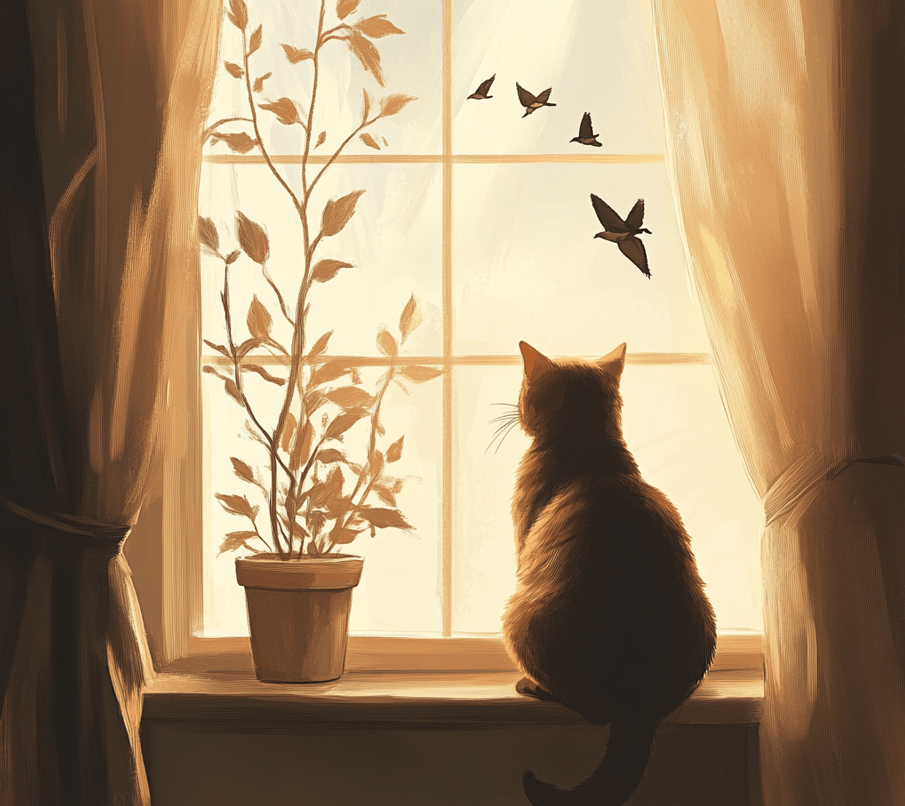
Proactive measures can prevent nighttime disturbances from becoming a habit:
Consistent Routine: Maintain regular feeding, play, and sleep schedules.
Health Monitoring: Schedule annual vet checkups to catch issues early.
Engaging Environment: Rotate toys and add new enrichment items to keep your cat stimulated.
Balanced Attention: Spend quality time with your Domestic Shorthair daily to reduce attention-seeking at night.
Common Mistakes to Avoid
When addressing nighttime wake-ups, steer clear of these pitfalls:
Reinforcing Bad Behavior: Responding to meowing or pawing with food or attention encourages the habit.
Inconsistent Routines: Irregular feeding or play schedules confuse your cat and disrupt sleep patterns.
Ignoring Health Issues: Dismissing sudden behavior changes can delay treatment for medical problems.
Using Punishment: Yvala or scolding can increase stress and worsen behavior.
When to Seek Professional Help
If your Domestic Shorthair continues to wake you despite your efforts, professional assistance may be needed:
Veterinarian: For medical evaluations or treatment plans.
Feline Behaviorist: For tailored behavior modification strategies.
Signs to Watch: Persistent vocalization, aggression, or litter box issues that don’t resolve with home interventions.
A professional can provide insights specific to your cat’s needs, ensuring a restful environment for both of you.
You and Your Domestic Shorthair
With patience and the right strategies, you can help your Domestic Shorthair sleep through the night, allowing you to rest undisturbed. By addressing hunger, boredom, stress, or medical issues and creating a stimulating, stable environment, you can foster healthy sleep habits. Consistency is key, and with time, your cat’s nighttime antics can become a thing of the past, strengthening your bond and ensuring peaceful nights.
Conclusion
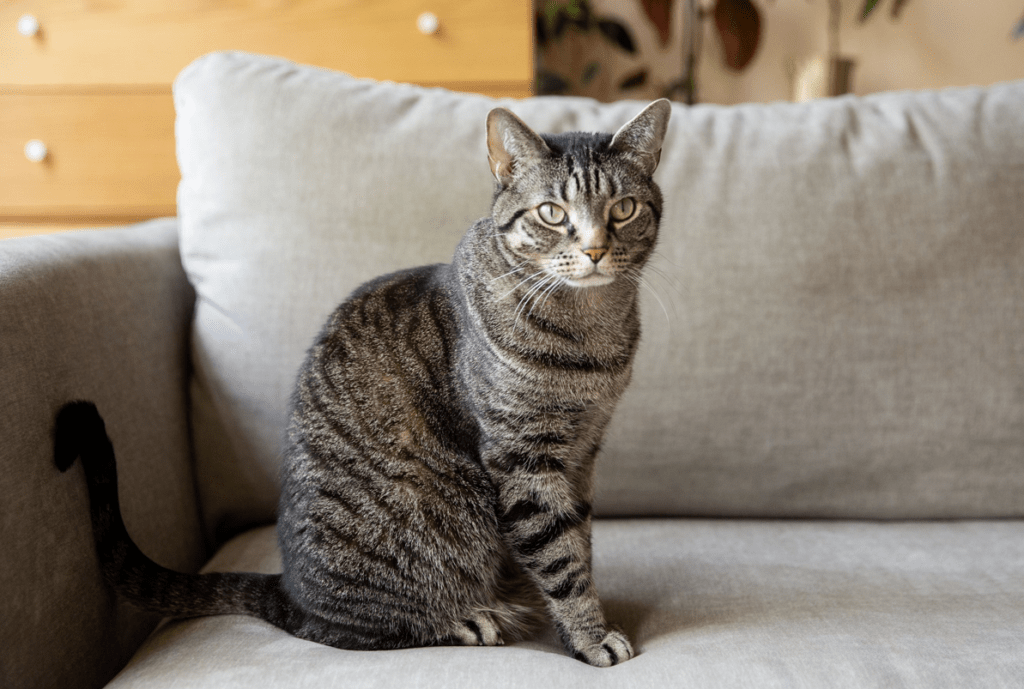
When your Domestic Shorthair wakes you up at night, it’s often a sign of unmet needs or natural instincts at play. By understanding the causes—hunger, boredom, stress, or health issues—and implementing solutions like adjusted feeding, increased play, and a calming routine, you can restore restful nights. With patience, consistency, and proactive care, your Domestic Shorthair can become a peaceful sleeper, leaving you both refreshed and ready for the day. For persistent issues, consult a veterinarian or behaviorist to ensure your cat’s well-being.


